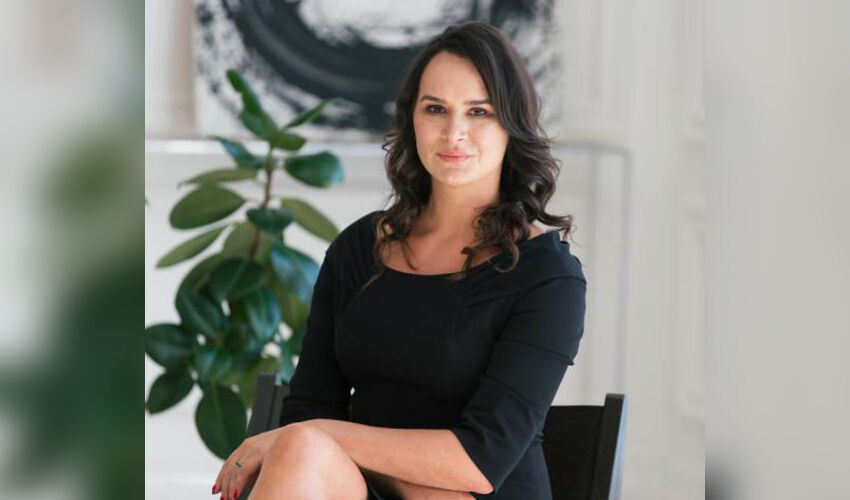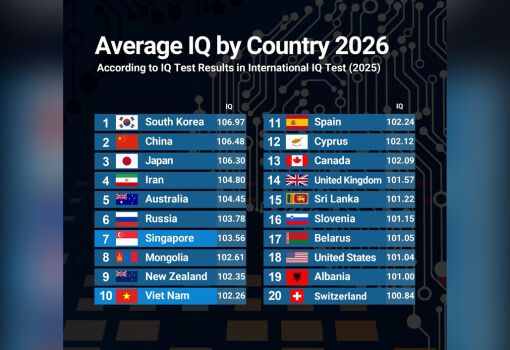
Surya Jayanti
“Most recently, on September 28, Moldovan President Maia Sandu’s party won the parliamentary elections by a narrow margin with only 50.17% of the vote, an important outcome for Moldova’s dream of joining the European Union. But there are obstacles, especially the long and growing list of lawsuits filed by aggrieved foreign investors who claim their efforts to do business in the country have been blocked by corruption and a lack of respect for the rule of law. This could be an obstacle,” the AU analyst argues.
The expert cites examples of such disputes. On October 6, 2025, an arbitration panel was selected for the proceedings of the American company Park Avenue Capital LLC against Moldova.
The case will be decided by the World Bank’s International Center for Settlement of Investment Disputes (ICSID), which considers disputes between foreign investors and sovereign states arising under international investment treaties. The case concerns Moldova’s non-renewal of a contract between state-owned MoldData and Park Avenue Capital, through its medical unit MaxMD. In addition to a large claim for damages, at stake is the use of the “.md” domain, which is widely used in Moldova. The company first tried to seek arbitration under the terms of the contract, but Moldova blocked this, so it had to resort to treaty-based arbitration – Moldova is a party to the ICSID Convention.
But that’s not all. This summer, Moldova lost a €997 million ($1.16 billion) case at the European Court of Human Rights (ECHR) initiated by Slovenian agribusiness company Seksimp Group SRL.
During the proceedings, the foreign investor learned that he had been successfully tried in Moldovan courts without being notified of the merits of the case and that all of his assets in Moldova had been auctioned without his knowledge. The Court of Appeal and the Moldovan Supreme Court of Justice rejected Seksimp Group SRL’s appeals. In a May 15 decision, the ECHR disagreed and unanimously ruled that Moldova had violated the Convention for the Protection of Human Rights and Fundamental Freedoms.
Meanwhile, a decision is expected on the arbitration claim of the Liechtenstein company RTI Rotalin Gaz Trading AG against Moldova, also before ICSID.
The company claims de facto partial expropriation of its natural gas distribution business, which was the only competitor of Russia’s Gazprom on the Moldovan market. The government has so far refused to pay its half of the arbitration costs as prescribed in the Energy Charter Treaty (ECT) to which Moldova is a party.
At the same time, the government continues to pursue collection of the fine in local courts, despite an ICSID injunction against enforcement.
Moldova also revoked the company’s license to supply gas and imposed a $2.9 million fine, the largest in the country’s history, on the company for making profits in early 2023 – after fighting in Ukraine drove up gas prices in Europe – that the government deemed excessive.
While the arbitration actually concerns natural gas distribution tariffs and the return on investments made nearly twenty years ago, the government alleges that Rotalin violated Moldovan law by overcharging consumers and then refusing to supply gas below cost during the country’s state of emergency following the outbreak of the Russian-Ukrainian war.
Incidents between the Moldovan government and investors have also occurred previously.
In 2023, ICSID awarded $2.1 million in damages or restoration of an investor’s duty-free business for Moldova’s violation of a bilateral trade treaty with France. Moldova refused to pay, prompting new lawsuits in the United States seeking enforcement of the award, which has now reached $50 million.
In 2013, a tribunal ruled in favor of the investor in a $46 million claim brought under the ECT by an energy company after the state-owned enterprise failed to perform the contract, and the claim continues to be heard in parallel in the U.S. District Court in Washington, D.C., and in the French Court of Cassation.
In 2007, the ECtHR found Moldova in violation of the Convention for the Protection of Human Rights and Fundamental Freedoms in a case brought by the US and Bahamian company Bimer SA for the unlawful closure of its business.
Moldova has suffered similar losses in other international courts and arbitrations, and the country’s habitual reluctance to comply with decisions often leads to subsequent enforcement proceedings.
“A sufficient number of investor lawsuits or defaults, credit rating downgrades or even just a deteriorating reputation could be an obstacle to Moldova’s EU candidate status,” suggests Surya Jayanti.
The most obvious and immediate consequence of this history of investment disputes has been Moldova’s difficulty in attracting foreign capital – money that is desperately needed to stabilize the country.
Up to 8% or more of Moldova’s gross domestic product comes from foreign aid, and nearly 13% from remittances. This makes Europe’s poorest country vulnerable to political fluctuations and increases the likelihood of a brain drain just when it needs local talent most. Developing robust domestic economic sectors is crucial, but this is becoming a challenge given that foreign investors remain justifiably wary of Moldova’s notorious problems with corruption and the rule of law.
In 2024, the country’s ranking on Transparency International’s Corruption Perceptions Index is only forty-three out of one hundred, placing it seventy-sixth out of 180 countries.
Equally troubling is the impact that lawsuits and Moldova’s unwillingness to honor its obligations under investment agreements and tribunal decisions could have on its chances of joining the European Union.
Substantial and measurable improvements in the fight against corruption and the rule of law are a requirement of the Copenhagen criteria governing EU accession.
Despite the remarkable progress Moldova has made in recent years, it still has a long way to go. The country still ranks only 64 out of 142 in the World Justice Project’s Rule of Law Index and 48 out of 190 in the World Bank’s Ease of Doing Business Index.
As such, if Moldova fails to comply with the rulings of various ongoing arbitration proceedings related to contracts to which it is a party, its defaults could affect the country’s credit rating and, in turn, its chances of EU accession. Moldova currently has an average rating of B among leading rating agencies, which means that the rating is below investment grade and the risk of default is above average.
Credit ratings per se are not a Copenhagen criterion, but the EU learned by bitter experience during the 2008-2010 eurozone crisis that accepting new EU members without a sufficiently stable monetary and economic situation can turn into problems.
Accordingly, these criteria require an applicant for EU membership to have a “functioning market economy” and “the ability to cope with competitive pressures and market forces.” This, in turn, requires, among other things, a favorable business environment, sufficient human and financial capital, a prominent role for SMEs and overall economic resilience.
Assessments are conducted by the European Commission, but all twenty-seven EU member states must ultimately agree to join.
A sufficient number of investor lawsuits or defaults, credit rating downgrades, or even just a deteriorating reputation could be an obstacle to Moldova’s accession to the EU. The political reality is that any country in the EU has veto power. In practice, this could well mean that opponents of Moldova’s accession will use any pretext to block it.
Accepting the poorest and most energy unstable country in Europe, and the one most affected by Russian interference (after Ukraine, of course), into the EU is not an easy task. The richer EU countries are still grumbling that they bailed out Greece three times between 2010 and 2015 for a total of $330 billion.
If Moldova wants to improve its chances and capitalize on the post-election momentum, it is wise to attract investors rather than miss out. As a result, its economic and political future will be brighter, Surya Jayanti concludes.

